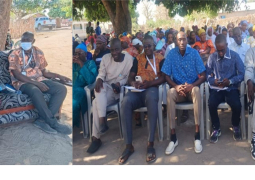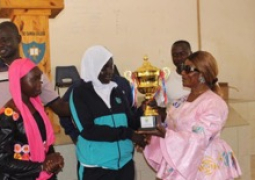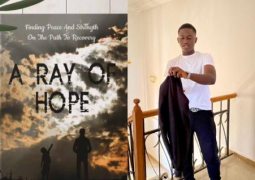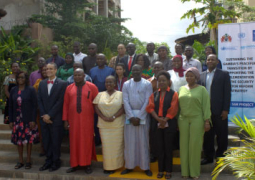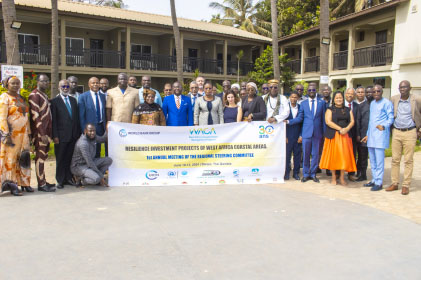
The regional meeting attracted participants from The Gambia, Senegal, Benin, Guinea Bissau, Mauritania, Togo and Ivory Coast among other regional and international partners.
The two-day event held under the theme ‘Resilience Investment Results of West Africa Coastal Area’ is aimed at exchanging experience and knowledge on pertinent issues in coastal management and its related matters.
In her opening statement, Rohey John Manjang, minister for Environment, Climate Change and Natural Resources, commended the World Bank for funding and providing technical support to the project.
"This gathering, underscores our shared commitment to safeguard our precious regional coastline and maritime ecosystem from the threats of climate change, pollution and environmental degradation. Millions of people across West Africa depend on the resources of the coastline for their livelihoods. These people see the WACA project as a lifeline.’’ she said.
Minister Manjang informed that erosion, pollution and the impacts of climate change are leading to sea level rise and dwindling fish stocks, thus driving people deeper into poverty.
"It is therefore fundamental that we urgently adopt an innovative and holistic approach to coastal management that addresses both the root causes and impacts of environmental degradation. This is why the WACA programme is important," she said.
The project, she added, presents a unique opportunity for the region to work closely together to safeguard its shared coastal areas, building the resilience of communities and protecting livelihoods.
"The Gambia is recognised for its ambitious climate commitments and bold steps taken to transform her commitments into tangible actions.’’
This project, she added will no doubt contribute immensely to marine and environmental protection as well as flood risk management.
The environment minister reminded that in The Gambia, the WACA project intervention area is unique, justifying that the project focused on restoring and reprofiling the Kotu Stream.
"This vital waterway runs through densely populated areas with the potential to shield about 20 percent of the Gambian population from flooding and pollution.
She assured that The Gambia will continue to strengthen her leadership in climate advocacy, mitigation and adaptation, noting the country is determined to ensure that all the project objectives are met and interventions are sustainable.
Manon Cassara, environmental specialist, WACA, recalled that since 2018, WACA has been committed to the most vulnerable coastal population as well as to the economies of coastal countries whose prosperity is challenged by the degradation of coastal environment.
"The regional steering committee is a great convening instrument in that regard, gathering member countries and regional partners so exchanges of experience and knowledge can flow across borders. It also allows us to pause and observe progress, evolution and trends of the programme." she said.
Ms Cassara assured that WB is ready to support the project towards coastal resilience and blue economy development, especially under the prism of the regional initiative on plastic and blue carbon, engagement with private sector and so on.
For his part, Christophe Deguenon, director of Environment and Water Resources for West Africa Economic and Monetary Union (WACMU), commended The Gambia government for hosting the meeting and for demonstrating its commitment to supporting the implementation of the project.
However, he called for strengthening of the project to enhance social development among member states, while expressing optimism that participants will work effectively in the implementation of the two projects.


